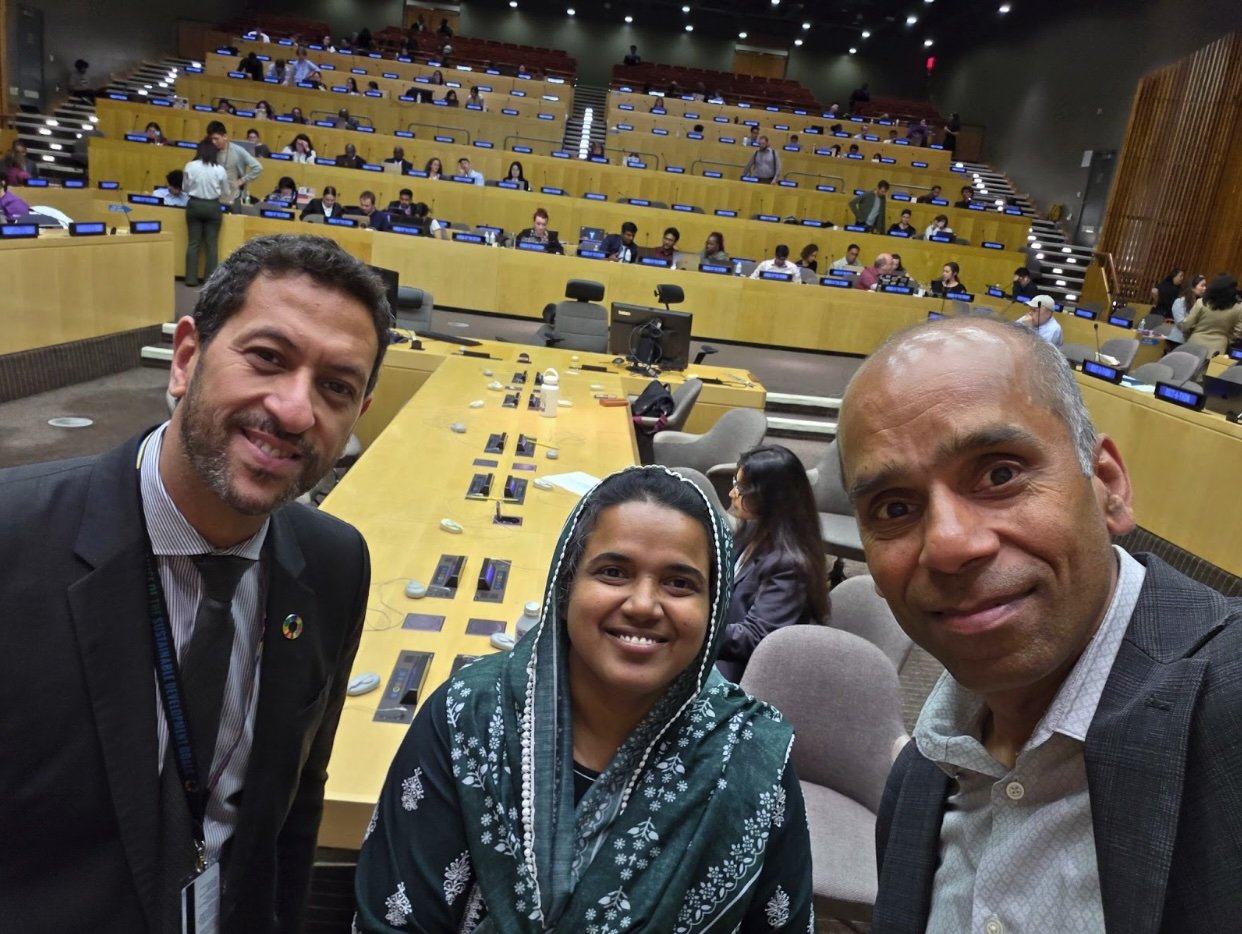Faseela K writes:
The United Nations office for Digital and Emerging Technologies hosted the UN Open Source Week at their HeadQuarters in New York from June 16th till 20th to facilitate the global dialogue and collaboration on open source, digital public infrastructure (DPI), and the development of innovative solutions to global challenges. The event featured a full week of networking, insightful panels, hackathons, and breakout sessions exploring topics related to open source, digital public infrastructure, problem solving, and digital cooperation.
I had the privilege to be invited as a jury member of the UN Tech Over Hackathon which happened on the first two days - June 16th and 17th.
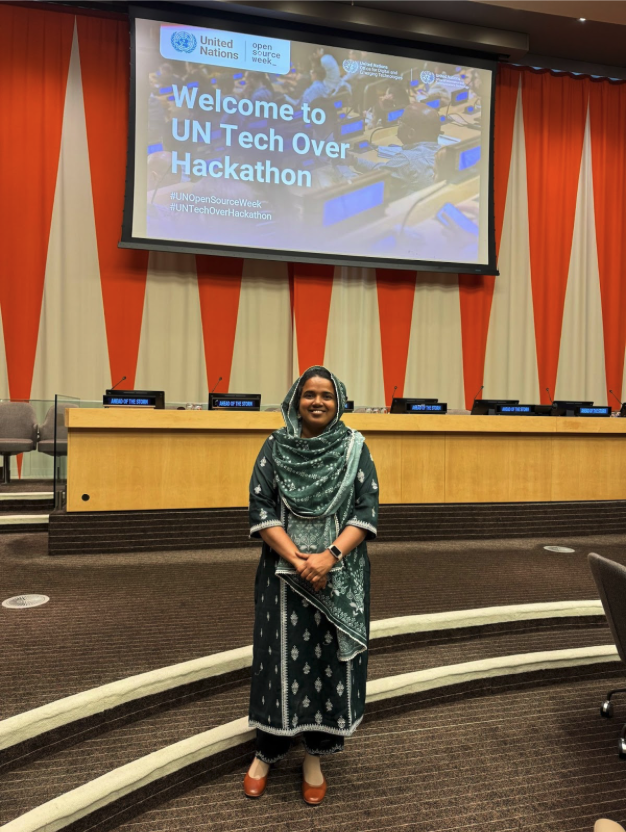
The Hackathon had a hands-on series of events exploring how open source and digital innovation can drive progress on the UN Sustainable Development Goals (SDGs):
🔹Ahead of the Storm – Climate + geospatial hackathon (co-hosted by UNICEF, The Apache Software Foundation, Linux Professional Institute (LPI), Cloud Native Computing Foundation (CNCF) and more) brought together global technologists, innovators, and climate change enthusiasts, to apply Open Geospatial Analytics for Children-Centric Climate Emergency Response to accelerate progress on the UN Sustainable Development Goals (SDGs) through open source innovation.
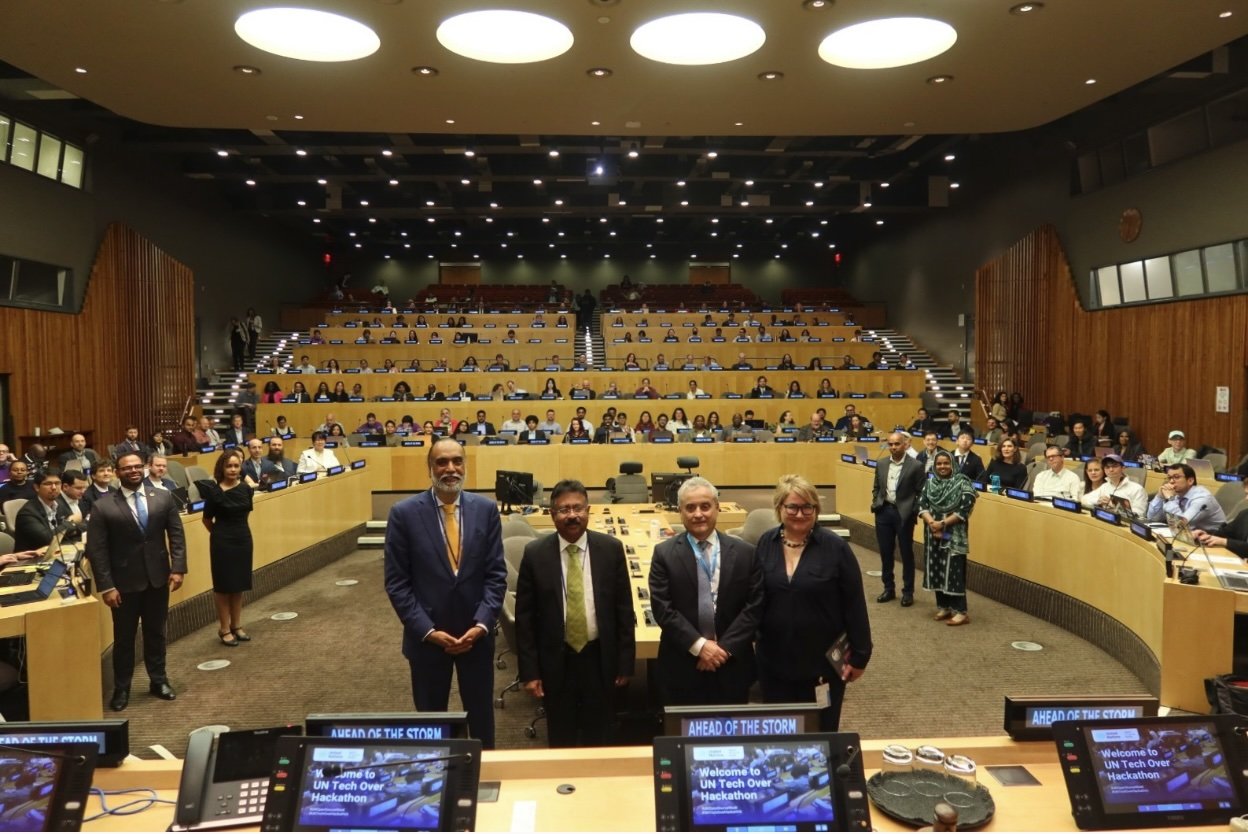
PIC - From the inaugural ceremony - with the UN Under-Secretary-General and special envoy for Digital and Emerging Technologies Amandeep Singh Gill
Participants chose from challenges set forth by UNICEF:
- Challenge 1: Enhancing child-focused extreme weather intelligence—moving from hindcasting to forecasting and shifting from reactive to proactive measures.
- Challenge 2: Solving the “Geo-Puzzle”—developing methods for layering multiple hazard data sets.
- Challenge 3: Making risk data visible and actionable—creating new features for GeoSight to support effective disaster preparedness and response.
A total of 21 teams, comprising 81 hackers from around the world, dedicated just over 30 hours to develop innovative solutions over the two days. The hackathon itself took place in the historic ECOSOC chamber—where the SDGs were originally conceived—adding a sense of significance to the proceedings.
The atmosphere was vibrant and energetic. While some participants joined pre-formed teams, many arrived solo and formed groups spontaneously. Attendees represented a diverse mix from academia, the private sector, and government. The hackathon was not just pure technical participation, this ensured that the teams had policy advocates along with technical experts that made the ideas and solutions more diverse and amazing!
Solutions were judged in a "science-fair style" by teams of 2-3 judges, with clear criteria shared in advance to ensure transparency. The top two teams in each challenge advanced to a second round of evaluation, evaluated by a different panel of senior experts.
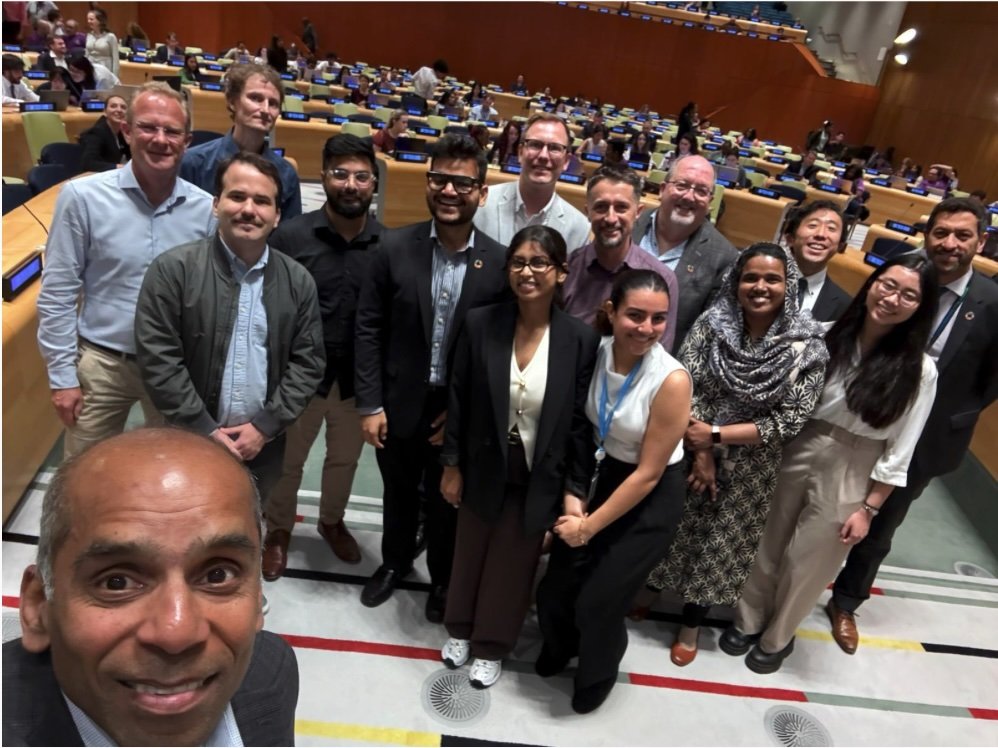
Pic - With the judges
Several projects stood out for their impactful ideas. One developed a child vulnerability index, acting as a climate fragility indicator in regions like China and Brazil, alongside overlay maps showing how many children are affected by cyclones. Another project examined flood impacts on children in Bangladesh, particularly focusing on their inability to attend school during such events. Enhancements to the GeoSight mobile app, including a more user-friendly interface and the integration of natural language querying for WMS-standard data, were also featured.
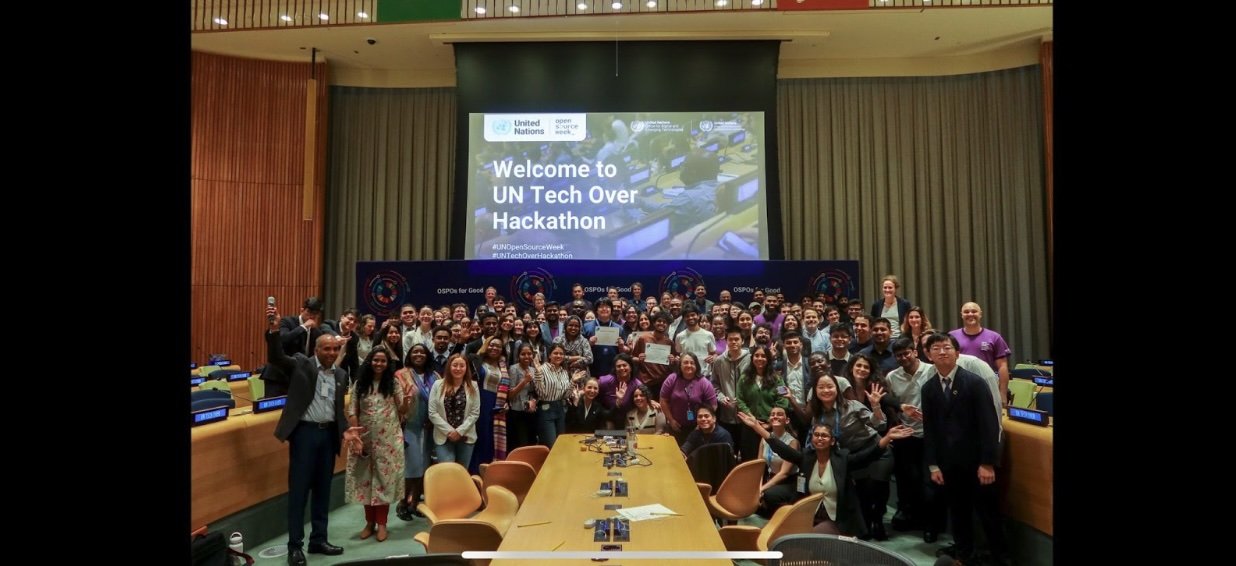
Pic - Hackathon Teams and judges with the winners
The event was inspiring—engaging with diverse individuals, and hearing their stories - showing how open source collaboration unites the global community in tackling shared challenges.
While I am a frequent attendee of many of the Open Source conferences, this one was a completely different experience. Having the opportunity to meet people from more than 40 countries who are working on social causes and human empowerment, it was really an eye opener to understand their problems and how they believe opensource can transform their world! It in turn gives me a deep faith, hope and sense of power in the technologies that I work and advocate for under the Cloud Native Computing Foundation (CNCF).
After the Hackathon, UN Open Source Week had three more days of quality events and content spanning from OSPOs for Good to Digital Public Infrastructure. The events brought together Open Source practitioners and Diplomats from all over the world under the UN umbrella and initiated numerous interesting and fruitful discussions.
A big thanks to Arun Gupta(CNCF) and Omar Mohsine(UN OpenSource Office) for being great mentors and spending time with me throughout the hackathon - be it for clarifying doubts about the event or to guide through the specialities of the amazing venue! And since gratitude to Ericsson, especially Phil Robb, Jan Melen and Syed Morshedul Karim for offering all their support to attend this special event!
